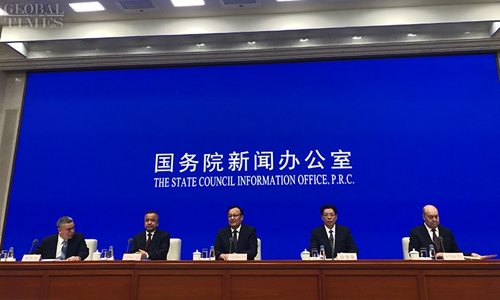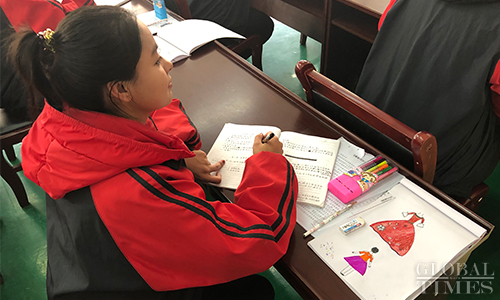All Xinjiang de-radicalization trainees graduate, find jobs, lead happy life

Trainees who used to be influenced by extremism have all graduated from the vocational education and training centers in Xinjiang, a senior official with Northwest China’s Xinjiang Uyghur Autonomous Region told reporters in Beijing on Monday.
“Xinjiang’s training centers now offer regular vocational training to officials, farmers & herdsmen and the public who are willing to gain certain skills,” said Shohrat Zakir, chairman of Xinjiang regional government.
Those graduates, with the help of the government, have found stable employment, improved their living standard and started leading a happy life, the chairman said.

Setting up vocational training centers has proven to be a useful exploration for China in the battle against terrorism and extremism, and in next step, Xinjiang will conduct regular and open training to village officials, Party members, farmers and unemployed graduates who would like to improve their education. The focus of the training will be on laws, vocational skills and Putonghua, according to the Xinjiang regional government chairman.
On the passing of the US “Uyghur Human Rights Policy Act of 2019,” the chairman said the bill has violated international laws and interfered with China’s internal affairs. It stands on the opposite side of the Chinese people and international morality.
The US bill aims to provoke relations between different ethnic groups in China and undermine stability and development, but Xinjiang residents are best qualified to speak on Xinjiang affairs, and US’ action will not disturb Xinjiang’s development, the chairman said.
Since the 18th National Congress of the Communist Party of China in November 2012, Xinjiang’s regional GDP has seen an annual increase of 8.5 percent, and urban and rural residents’ per capita disposable income rose annually by 8.4 percent and 8.2 percent respectively, the chairman told the press conference on Monday.
A total of 2,385,300 people in Northwest China’s Xinjiang Uyghur Autonomous Region have been lifted out of poverty since 2014, and the poverty rate dropped to 6.51 percent in 2019 from 22.48 percent in 2014.
Xinjiang received 150 million tourists from home and abroad in 2018, and transfer payments from the central government to Xinjiang have reached nearly 400 billion yuan ($56 billion) a year since 2014. Meanwhile, 19 provinces and municipalities and central state-owned enterprises have provided aid to Xinjiang with an annual investment of more than 15 billion yuan, the chairman said.
Source:Global Times












